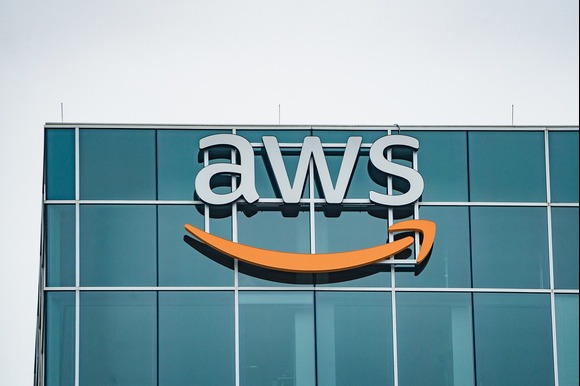A massive Amazon Web Services (AWS) outage on Monday knocked some of the world’s biggest websites and apps offline, disrupting platforms including Snapchat, Reddit, and Roblox, as well as several major banks such as Lloyds and Halifax.
According to monitoring site Downdetector, more than 1,000 apps and websites were affected globally after widespread technical problems emerged at the core of Amazon’s cloud computing operations in the United States. Reports of outages soared to over 6.5 million during the disruption on Monday morning.
Amazon said it had restored services by around 12:00 BST, but experts warned the incident revealed the deep vulnerabilities created by the world’s heavy reliance on a few dominant technology providers.
“This episode has highlighted just how interdependent our infrastructure really is,” said Prof Alan Woodward of the University of Surrey. “So many online services rely upon third parties for their physical infrastructure, and this shows that problems can occur even in the largest and most sophisticated providers. Small errors, often human made, can have widespread and significant impact.”
Outage began in early hours
The problems appeared to begin around 07:00 BST, as users across the world began reporting difficulties accessing numerous platforms — ranging from massive online games like Fortnite to the language-learning app Duolingo.
Downdetector told the BBC it had received over four million user reports across 500 sites within hours — more than double its usual daily total for an entire weekday. These later climbed beyond six million as affected services, including Reddit and Lloyds Bank, struggled to recover.
By around 11:00 BST, Amazon said most of its affected systems were coming back online.
What caused the outage?
Amazon has not yet released a full technical explanation for the failure or issued an official public statement. However, an update on its service status page suggested the issue “appears to be related to DNS resolution of the DynamoDB API endpoint in US-EAST-1.”
DNS — short for Domain Name System — acts like the internet’s phone book, converting human-readable website names (such as bbc.co.uk) into numerical IP addresses that computers use to find one another. Any disruption to this process can make websites temporarily unreachable, as browsers fail to locate the servers that host content.
Matthew Prince, chief executive of web infrastructure firm Cloudflare, told the BBC that the incident underscores how much control large cloud providers exert over the functioning of the internet.
“Everyone has a bad day — today Amazon had a bad day,” Prince said. “There are amazing things about the cloud: it allows you to scale quickly. But when you have an outage like this, it can take down a lot of services we rely on.”
Experts warn of overreliance on big tech
Cori Crider, director of the Future of Technology Institute, described the incident as “a bit like a bridge collapsing.”
“An essential part of the economy has fallen to pieces,” she said. “With so much of cloud computing dominated by just three companies — Amazon, Microsoft, and Google — this level of concentration is unsustainable.”
Crider argued that the dominance of a handful of providers leaves global infrastructure dangerously exposed. “Once you have a concentrated supply in a few monopoly providers, when something like this fails, it takes a huge percentage of the economy out with it,” she said.
She urged governments and businesses to diversify their technology suppliers. “We should look at investing in more local or regional cloud services, rather than relying entirely on a few American monopoly platforms. That dependence poses risks to our security, sovereignty, and economic stability. We need structural changes to make our digital markets more resilient to shocks like this.”
A warning for the digital age
While service was restored within hours, Monday’s AWS outage served as a stark reminder of how much the modern internet depends on a small number of cloud computing giants. With Amazon, Microsoft, and Google controlling roughly 70% of the global cloud market, experts warn that even minor technical faults can cascade into large-scale disruptions across economies, industries, and everyday life.
As Prof Woodward noted, “It only takes one small misconfiguration or software glitch to bring down huge portions of the internet. What we saw today was a demonstration of just how fragile global connectivity can be.”






